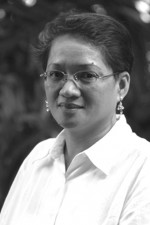Last week’s appearance of Cebuano businessman David Lim before the Senate committee on agriculture which is investigating rice smuggling activities in the Bureau of Customs (BOC) came as a bit of a surprise to the local community because there had been no previous reports in the national media linking Mr. David Lim to the rice importation anomaly.
As we know, it is David Tan alias Davidson Bangayan who is at the center of the Senate probe. He is described as the Goliath of rice smuggling, who works in cahoots with officials in the BOC, National Food Authority (NFA) and other government agencies including the National Bureau of Investigation.
Before the Senate body, Davidson Bangayan and David Lim denied any involvement in rice smuggling activities.
David Lim is no stranger to controversy. He is a brother of Peter and Wellington Lim who, in previous years, were implicated in drug smuggling cases that rocked Cebu City.
It maybe recalled that in 1997, the House committee on dangerous drugs led by then congressman Antonio Cuenco launched a probe based on a Philippine National Police intelligence report which tagged Peter and Wellington Lim as drug lords. The probe went nowhere because the police report was deemed raw and unverified. However, the controversy didn’t die down because Cuenco launched another hearing in 2001, this time based on the testimonies of the Lim brothers’ former employees, Bernard Liu and Ananias Dy. The whistle-blowers said they acted as couriers for the Lim brothers in the drug trafficking trade but like in the previous congressional inquiry, it yielded nothing against the controversial brothers. The murder of the whistle-blowers in separate incidents (Ananias Dy in 2006 and Bernard Liu in 2011) is a footnote to this story.
The only time that David Lim figured in a controversy was in early 2001 during a failed coup against the then newly-installed administration of Gloria Macapagal-Arroyo. GMA succeeded Joseph Estrada as president after he was booted out from office by Edsa Dos but the transition proved messy.
Reports then were rife that Filipino-Chinese businessmen contributed money to finance Edsa Tres and in Cebu and Bohol, the fund-raising activity was led by David Lim. Lim rejected the allegation and together with the rest of the Fil-Chinese business community, flatly denied involvement in the coup plot.
Two days before the appearance of David Tan and David Lim before the Senate body, hundreds of thousands of rice farmers in Ilocos Region launched a fund-raising campaign to help prosecute big time rice smugglers in the country.
The agriculture stakeholders led by Oftociano Manalo, president of the Region I Confederation of Irrigators Association and Samahang Industriya ng Agrikultura chief Rosendo So were rather certain of the identities of the smuggling Goliaths, according to the Northern Star, a community paper based in Dagupan City.
According to So, David Tan was behind 80 percent of rice smuggling while David Lim controls 20 percent.
Manalo told the Northern Star that the more than 400,000 rice farmers in the Ilocos were willing to contribute a peso each, “so that smuggling, which is hurting the farmers, would be stopped with the arrest of the two Davids.”
The movement to arrest and prosecute Tan and Lim gained traction among farmers and irrigators association in the Ilocos region because rice smuggling has bled the agricultural sector dry in Ilocos Norte, Ilocos Sur, La Union and Pangasinan. The economies of the four provinces in the Ilocos region are mostly agriculturally-driven, although Pangasinan which is located in the southern portion has an agro-industrial economy.
According to Manalo, the modus operandi of rice smugglers is to approach the irrigators’ associations and convince them to get rice importation permits from the NFA. The implication of a quid pro quo commits the illegal transaction to fruition, that is why some farmers may already be deeply involved in rice importation because it’s more profitable to smuggle rather than produce.
As the Senate probe continues at a slow pace, we are seeing the slow death of the agricultural industry not just in the hands of rice smugglers but even the farmers.
